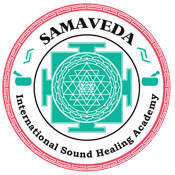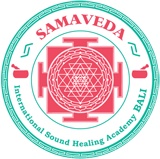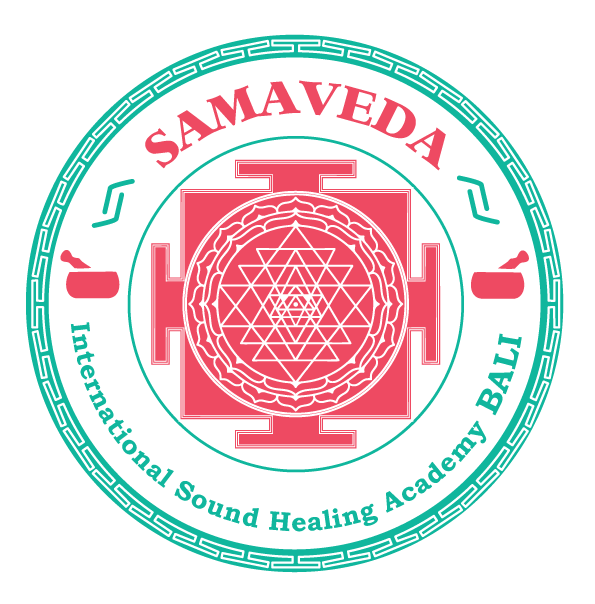what are common 38 questions and answer people ask regarding ecstatic Dance
Here are 39 common questions and answers that people ask regarding ecstatic dance:
- Q: What is ecstatic dance? A: Ecstatic dance is a freeform movement practice that encourages self-expression and emotional release through dance and music.
- Q: Is there a specific structure or format to follow in an ecstatic dance session? A: While ecstatic dance sessions may vary in structure, they often begin with a warm-up, followed by an opening circle or intention setting. The main part of the session involves freeform dancing, and it typically concludes with a closing circle or integration period.
- Q: Are there any specific breathing techniques or practices involved in ecstatic dance? A: Some ecstatic dance sessions incorporate conscious breathing techniques to enhance embodiment, relaxation, and energy flow. However, the emphasis is primarily on intuitive and natural breathing rather than specific techniques.
- Q: Can ecstatic dance be therapeutic? A: Yes, ecstatic dance can be a therapeutic practice, allowing individuals to release emotions, access deeper layers of self-awareness, and promote overall well-being through movement and self-expression.
- Q: Is ecstatic dance a form of exercise? A: Ecstatic dance can certainly be a form of exercise as it involves physical movement, cardiovascular activity, and engages various muscle groups. However, the focus is not solely on physical fitness but also on the emotional, mental, and spiritual aspects.
- Q: Can ecstatic dance help with stress and anxiety? A: Yes, ecstatic dance can serve as a powerful tool for stress and anxiety relief. It allows individuals to release tension, express emotions, and enter a state of flow, promoting relaxation and a sense of calm.
- Q: Are there any specific meditation or mindfulness practices incorporated into ecstatic dance? A: While ecstatic dance itself can be meditative and mindful, some sessions may include guided meditation or mindfulness exercises at the beginning or end to help participants center themselves and cultivate present-moment awareness.
- Q: Are there any specific traditions or lineages associated with ecstatic dance? A: Ecstatic dance draws inspiration from various traditions and lineages, including shamanism, ecstatic rituals, trance dance, and modern conscious dance practices. However, it is an inclusive practice that welcomes diverse influences and personal interpretations.
- Q: Can ecstatic dance be done outdoors? A: Yes, ecstatic dance can be practiced outdoors, allowing participants to connect with nature and the elements while dancing freely. Outdoor settings can enhance the experience by providing a different atmosphere and connection to the environment.
- Q: Is ecstatic dance only for extroverted individuals? A: No, ecstatic dance is for everyone, regardless of introversion or extroversion. It offers a space for both extroverts to express themselves outwardly and introverts to explore their inner landscapes through movement.
- Q: Can I expect a sense of community and connection in ecstatic dance sessions? A: Yes, ecstatic dance often fosters a sense of community and connection among participants. The shared experience of movement, music, and self-expression can create a supportive and inclusive environment.
- Q: Can ecstatic dance be a form of self-healing? A: Ecstatic dance has the potential to support self-healing processes by allowing individuals to release stagnant energy, access emotions, and reconnect with their bodies. It can be a transformative practice on various levels.
- Q: Is it common to have live musicians or drumming during ecstatic dance sessions? A: Live musicians or drumming can be part of some ecstatic dance sessions, enhancing the energy and creating a dynamic and immersive experience. However, not all sessions include live music.
- Q: Can ecstatic dance enhance creativity? A: Yes, ecstatic dance can stimulate creativity by encouraging individuals to move outside of their habitual patterns, explore new possibilities, and tap into the wellspring of inspiration within their bodies.
- Q: Can ecstatic dance be a form of self-care? A: Absolutely! Ecstatic dance can be seen as a form of self-care as it allows individuals to prioritize their well-being, release stress, and nourish their bodies and minds through movement and self-expression.
- Q: Can I attend an ecstatic dance session if I have physical limitations or disabilities? A: Yes, ecstatic dance can be adapted to accommodate various physical limitations or disabilities. It’s important to communicate your needs with the facilitators or organizers to ensure a safe and inclusive experience.
Certified sound healing teacher training school India
Students at Satyam Shivam Sundaram receive certified teacher training in sound healing. The course prepares them to lead sound therapy sessions using singing bowls, gongs, and other instruments. Graduates receive internationally recognized certification upon completion. - Q: Can ecstatic dance help with body confidence and body acceptance? A: Yes, ecstatic dance can support body confidence and body acceptance by promoting a non-judgmental environment where individuals can explore and embrace their unique bodies and movement styles.
- Q: Can ecstatic dance sessions incorporate other modalities like sound healing or bodywork? A: Some ecstatic dance sessions may integrate complementary modalities such as sound healing, bodywork, or guided visualizations to enhance the overall experience and deepen the mind-body connection.
- Q: Can ecstatic dance be a spiritual practice for individuals who follow a specific spiritual path? A: Yes, ecstatic dance can be a spiritual practice for individuals of different spiritual paths, providing a means to connect with the divine, transcendence, or inner wisdom through movement and music.
- Q: How is ecstatic dance different from traditional dance styles? A: Ecstatic dance differs from traditional dance styles as it focuses on personal expression rather than following specific steps or choreography.
- Q: Can anyone participate in ecstatic dance? A: Yes, ecstatic dance is open to anyone regardless of age, dance experience, or physical ability.
- Q: Do I need to be physically fit to participate in ecstatic dance? A: No, ecstatic dance welcomes individuals of all fitness levels. You can dance at your own pace and intensity.
- Q: Is ecstatic dance a solo practice, or can I dance with a partner? A: Ecstatic dance can be done both solo and with others. It’s up to you whether you want to dance alone or engage in partner or group movements.
- Q: Are there specific rules or steps to follow in ecstatic dance? A: Ecstatic dance is largely rule-free, allowing participants to move in whatever way feels authentic to them. However, each session may have guidelines for creating a safe and respectful space.
- Q: Do I need to bring my own music for an ecstatic dance session? A: Ecstatic dance sessions are usually facilitated by DJs or organizers who curate the music. You don’t need to bring your own music.
- Q: What should I expect during an ecstatic dance session? A: Expect a non-judgmental, inclusive environment where you can freely express yourself through movement, guided by the music.
- Q: Can I talk during an ecstatic dance session? A: Most ecstatic dance sessions encourage nonverbal communication and discourage talking on the dance floor. However, there may be designated spaces for conversation outside the dance area.
- Q: Is there a dress code for ecstatic dance? A: There is no specific dress code, but it’s recommended to wear comfortable clothing that allows for freedom of movement.
- Q: How long do ecstatic dance sessions usually last? A: The duration of ecstatic dance sessions can vary, but they typically last between 1 to 2 hours.
- Q: Can I join an ecstatic dance session if I’m not a good dancer? A: Absolutely! Ecstatic dance is not about skill or technique. It’s about expressing yourself authentically and connecting with your own body and movement.
Singing sound healing workshops at accredited schools India
The school’s accredited workshops focus on singing bowls and sound healing. These workshops offer hands-on experience and theoretical knowledge for holistic healers. Workshops are ideal for those looking to incorporate sound therapy into their practice. - Q: What are some benefits of practicing ecstatic dance? A: Benefits may include stress reduction, increased body awareness, emotional release, enhanced creativity, improved self-confidence, and a sense of connection with oneself and others.
- Q: Can I bring my children to an ecstatic dance session? A: Some ecstatic dance events offer family-friendly sessions where children are welcome. However, it’s best to check with the organizers beforehand.
- Q: Are drugs or alcohol allowed during ecstatic dance sessions? A: Ecstatic dance is typically a drug- and alcohol-free space, promoting natural ecstatic experiences through movement and music.
- Q: Is ecstatic dance a spiritual practice? A: For some people, ecstatic dance can be a spiritual experience, but it’s not inherently tied to any specific spiritual or religious beliefs.
- Q: Can I attend an ecstatic dance session if I have physical limitations? A: Yes, ecstatic dance can be adapted to accommodate various physical limitations. You can modify movements to suit your abilities and comfort level.
- Q: Are there any age restrictions for participating in ecstatic dance? A: Ecstatic dance is generally open to people of all ages, but some sessions may have age restrictions or specific family-friendly events.
- Q: Is it necessary to have previous meditation experience to enjoy ecstatic dance? A: No, prior meditation experience is not required. Ecstatic dance can be a form of moving meditation in itself.
- Q: Can I bring my own props or instruments to an ecstatic dance session? A: It depends on the specific guidelines of the session or event. Some may allow props or instruments, while others prefer a minimalistic approach focused on body movement.
- Q: How can I find ecstatic dance events or communities near me? A: You can search online for local ecstatic dance events, workshops, or communities in your area. Social media platforms and online directories can be helpful resources as well.
Singing bowls training certification at top healing schools India
Their singing bowls certification program is one of the most recognized in India. Students learn to conduct both group and individual sound healing sessions. Participants also learn how to integrate sound therapy with other healing modalities.
Satyam Shivam Sundaram Meditation School India with Samaveda International Sound Healing Academy – Offers 4 Days Certified Ecstatic Dance DJ Training In Goa, India With One the Best Ecstatic Dance Dj From World. DJ Ecstatic Dance Facilitator Training India
Samaveda International Sound Healing Academy – Offers 4 Days Certified Ecstatic Dance DJ Training In Goa, India With One the Best Ecstatic Dance Dj From World. Ecstatic DJ Training Goa India


